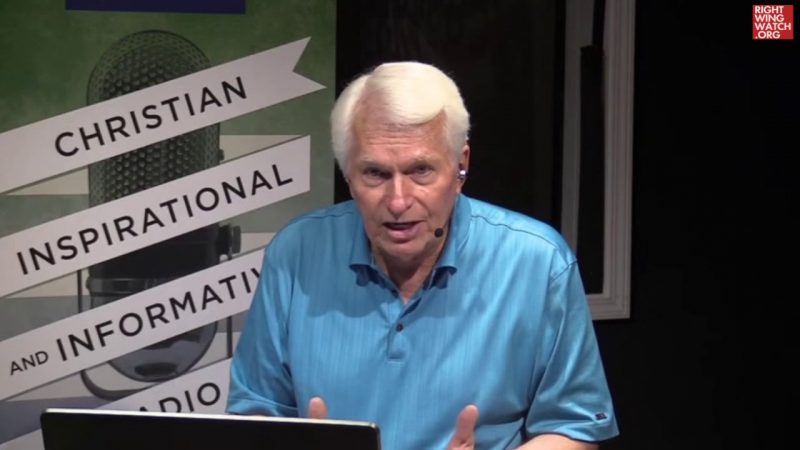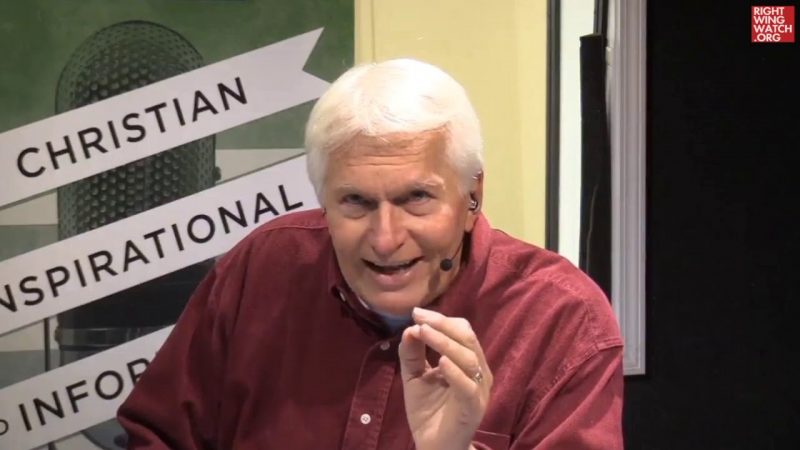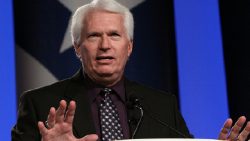A few weeks ago, we wrote another post in our seemingly never–ending series of pieces pointing out that the American Family Association’s Bryan Fischer holds such a fundamentally incoherent view of the reach and scope of the First Amendment that even he can’t keep his inconsistent opinions straight.
Fischer has an amazing ability to make blatantly contradictory arguments that are based entirely on what he wants the end result to be, so that he insists at certain times that the First Amendment solely applies to Congress and the federal government, only to later turn around and insist that entities that are not Congress or part of the federal government are supposedly guilty of egregiously violating the First Amendment.
For example, a few weeks ago, Fischer fumed after the Supreme Court refused to hear a case involving a high school football coach from Washington state who was fired after he refused to stop publicly praying with players and students on the field after games. In Fischer’s view, the federal courts had an obligation under the First Amendment to step in and protect coach Joe Kennedy’s right to religious expression:
Congress – and by extension, the entire federal government including the judiciary – has absolutely no permission to interfere in any way with the free exercise of religion. What did the 9th Circuit do to Coach Kennedy? Well, when it prohibited him from praying silently on the field after the game was over, it was inarguably prohibiting his free exercise of religion. So it was the 9th Circuit that violated the First Amendment, not Coach Kennedy.
Today, Fischer wrote a column praising the Supreme Court for refusing to hear a case involving a recently executed Muslim inmate in Alabama who had requested to have an imam present in the execution chamber with him. (Christian prisoners in Alabama are routinely granted the right to have the Christian prison chaplain in the chamber at the time of execution.) In this instance, Fischer is insisting that the federal courts had an obligation not to protect this inmate’s right to religious expression because regulation of such issues is to be left entirely up to the states:
[R]egulating religious expression was to be none of the federal government’s business. Since the federal government was barred from any kind of interference in religious matters, all was left to the states … Now the “whole power” over religion means the “whole power,” every bit of it. Not a bit of it was left to the federal government. So properly speaking, what happens inside an Alabama prison is no business of the federal judiciary at all. It’s a matter for Alabama judges and Alabama lawmakers alone to set the parameters for religious exercise.
When this case was first sent to a federal court, the court should have immediately sent it back to Alabama authorities with the explanation that the Constitution has not given them any authority to intrude into this case at all.
In the case of the Christian football coach who was supposedly denied his right to freely exercise his religion by the state of Washington, Fischer insisted that the First Amendment required the federal courts to step in and remedy this violation. But in the case of the Muslim inmate who claimed that his right to exercise his religion was violated by the state of Alabama, Fischer insisted that the First Amendment prohibits federal courts from interfering because state restrictions of religious expression are “none of the federal government’s business.”








